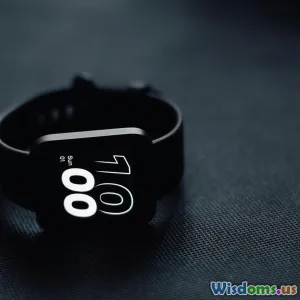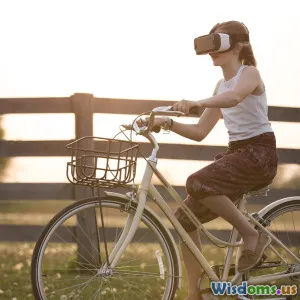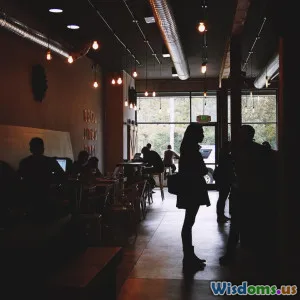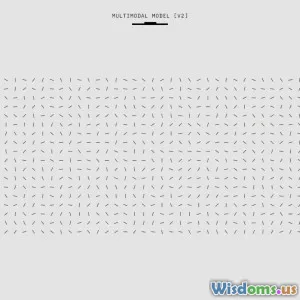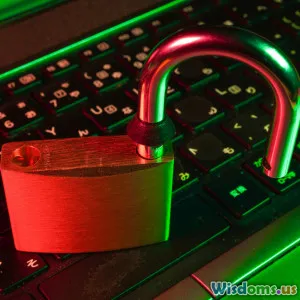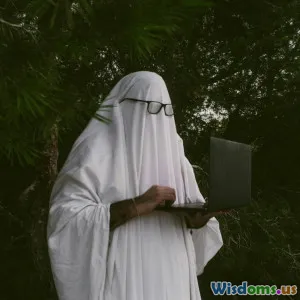
How Technology Is Changing Ghost Hunting in the 21st Century
7 min read Explore how cutting-edge technology is revolutionizing ghost hunting in the 21st century. (0 Reviews)
How Technology Is Changing Ghost Hunting in the 21st Century
Ghost hunting, once the realm of candlelit séances and anecdotal evidence, has undergone a remarkable transformation in the 21st century. Thanks to advancements in technology, what was once considered a fringe activity driven by folklore and subjective experiences now incorporates sophisticated tools and scientific approaches. This evolution is not only expanding the methods used by paranormal investigators but also elevating the credibility and intrigue surrounding ghost hunting.
The Dawn of Technological Ghost Hunting
Before modern technology, ghost hunting relied heavily on eyewitness testimony, photographic anomalies like orbs, and rudimentary devices such as tape recorders. These methods often drew skepticism for their lack of replicability and scientific rigor. However, the dawn of the digital age has introduced powerful enhancements, making paranormal investigation both more measurable and interactive.
Cutting-Edge Tools Revolutionizing Investigations
Infrared and Thermal Imaging Cameras
Thermal imaging cameras detect heat variances invisible to the naked eye. Ghost hunters use these to spot cold spots or unexplained hot spots in haunted locations. For example, the legendary Eastern State Penitentiary in Philadelphia sees investigators frequently capturing unexplained thermal anomalies, lending a new layer of data to explore.
Digital EVP Recorders
Electronic Voice Phenomenon (EVP) capturing has vastly improved with high-quality digital recorders. Unlike analog tape recorders vulnerable to tape hiss and degradation, modern devices record clear audio that can be analyzed with software designed to filter out background noise, raising the chances of detecting elusive paranormal voices.
Motion Sensors and Environmental Monitors
Complex sensor arrays measure electromagnetic fields (EMF), temperature, humidity, and even barometric pressure. Higher-than-expected EMF readings often coincide with ghostly activity claims. Tools like the Mel Meter integrate multiple sensors, allowing investigators to document environmental fluctuations that may indicate paranormal presence.
The Rise of AI and Machine Learning in Paranormal Research
Pattern Recognition in Data Analysis
Artificial Intelligence aids ghost hunting enthusiasts by processing massive datasets collected during investigations. Machine learning algorithms can detect patterns or anomalies too subtle for humans to identify. For instance, recurring audio cues or recurring temperature dips in specific spatial coordinates can now be compiled and analyzed swiftly.
Enhancing EVP and Visual Evidence Interpretation
AI-driven audio enhancement tools help distinguish potential spirit communication from mundane sounds. Some experimental projects have even used neural networks to analyze grainy images and video footage for unexplained phenomena, reducing false positives caused by camera artifacts or environmental noise.
Real-World Tech-Enabled Ghost Hunting Examples
The Ghost Adventures Team
The popular TV series "Ghost Adventures" integrates technology ranging from full-spectrum cameras to custom software dashboards for real-time monitoring during investigations. Their rigorous documentation and tool sophistication have garnered a broad following and sparked increased interest in tech-based ghost research.
Interactive Ghost Hunting Apps
Mobile applications like "Wraith" or "Ghost Radar" engage users by simulating sensor readings while also connecting to real environmental sensor data where available. Though sometimes controversial regarding accuracy, these apps mainstream the concept of tech-enhanced paranormal exploration.
Scientific Scrutiny and Skepticism
While technology has empowered ghost hunters, it also invites increased scientific scrutiny. Critics argue many devices detect natural environmental phenomena that can be misinterpreted as paranormal. In response, some researchers advocate for standardized protocols and peer-reviewed methodologies, emphasizing repeatable and falsifiable evidence.
Future Trends: VR, AR, and Remote Investigations
Virtual and Augmented Reality
Emerging VR and AR technologies are creating immersive experiences that allow both investigators and enthusiasts to explore haunted sites digitally. These tools could facilitate remote ghost hunting while overlaying historical or paranormal data, enriching the experience without physical presence.
Networked Sensor Arrays and Smart Homes
Envision a future where the Internet of Things (IoT) integrates paranormal sensors into smart home devices. Continuous monitoring could flag anomalies automatically, triggering immediate investigation and data logging in real-time.
Conclusion: Technology Breathing New Life Into a Centuries-Old Mystery
In the 21st century, the fascination with the supernatural is being reshaped by innovative technology. Far from eroding the mystery, these advances add layers of data-driven insight, improve investigative rigor, and broaden accessibility. While debate continues over interpretation and validity, there’s no denying that technology is opening remarkable new frontiers in ghost hunting, making it a truly 21st-century pursuit that blends wonder, science, and story.
Whether a skeptic or believer, the integration of technology offers a richer, more engaging portal into one of humanity's oldest mysteries.
Sample Sources & Further Reading:
- "Paranormal Research: Tools & Techniques," Journal of Scientific Exploration, 2022.
- Ghost Adventures Official Site: https://www.travelchannel.com/shows/ghost-adventures
- Thermography in Paranormal Investigation, Parapsychology Today, 2021.
Author’s Note: If you’re intrigued, consider attending a tech-savvy ghost hunt or experimenting with digital tools to explore your own paranormal curiosities.
Rate the Post
User Reviews
Popular Posts
















